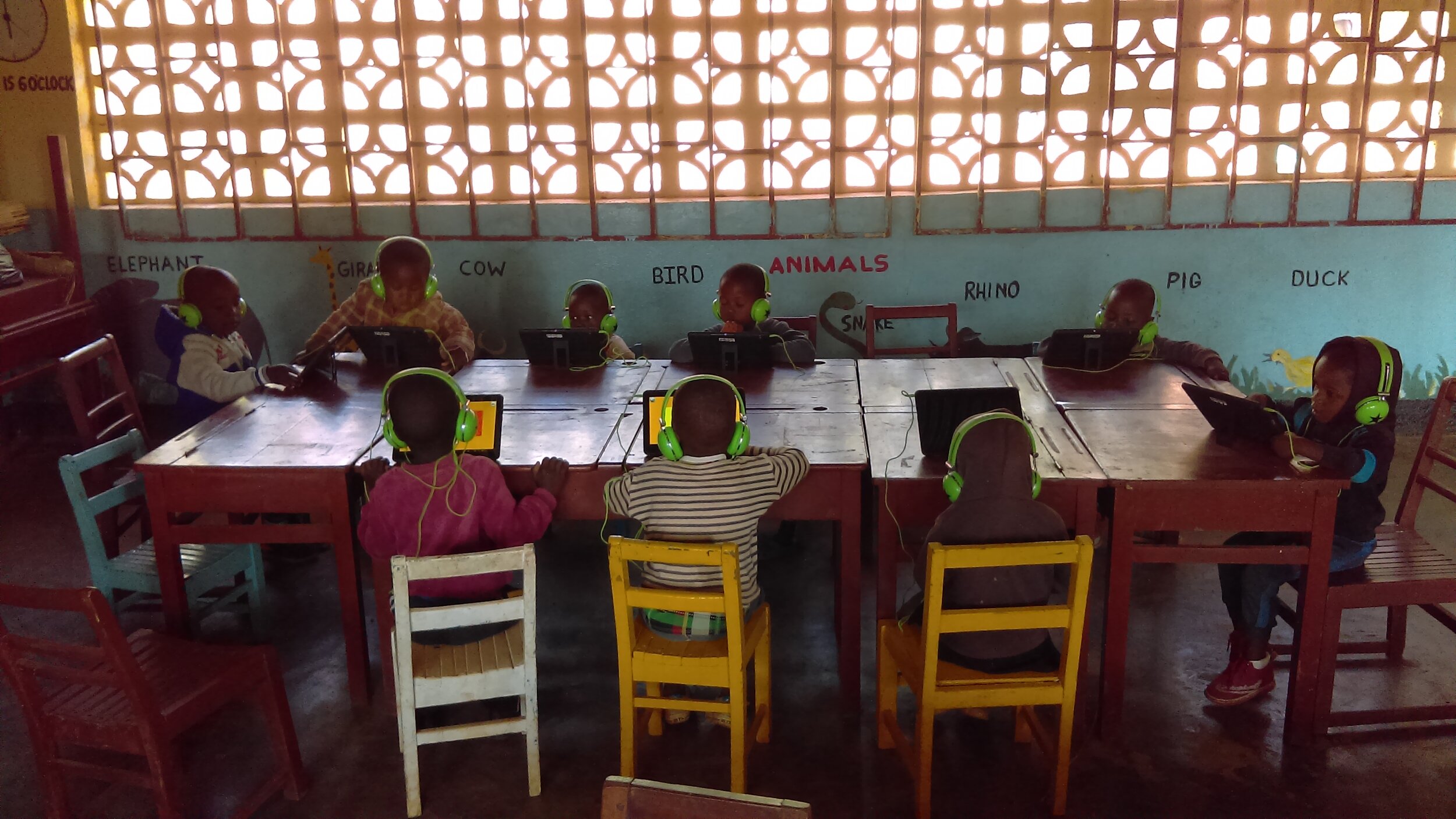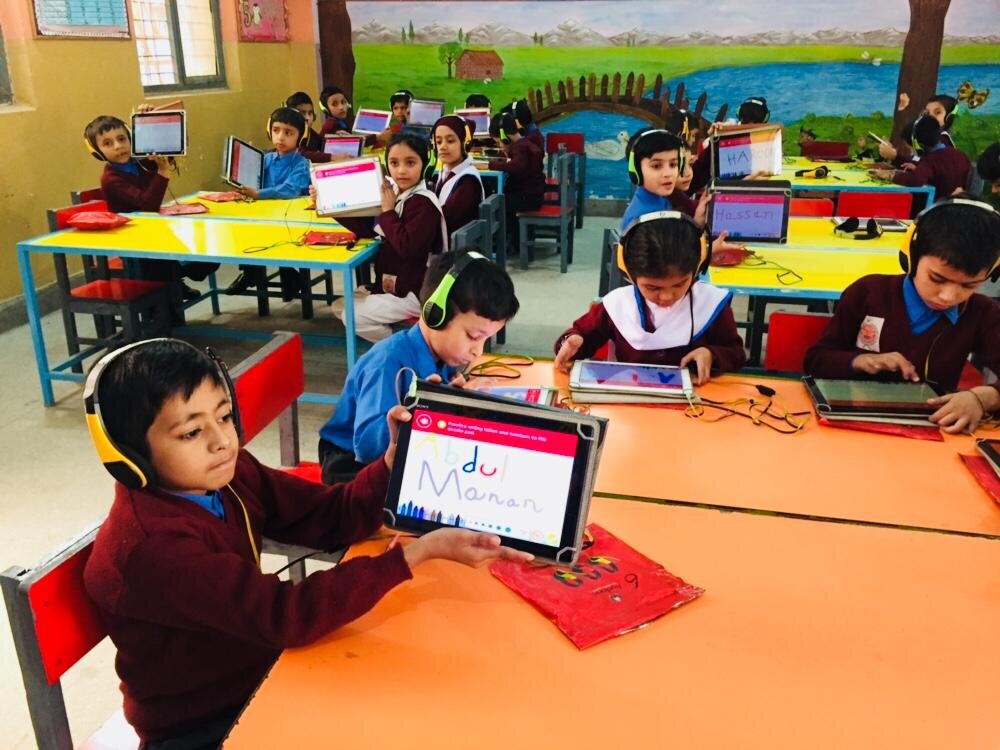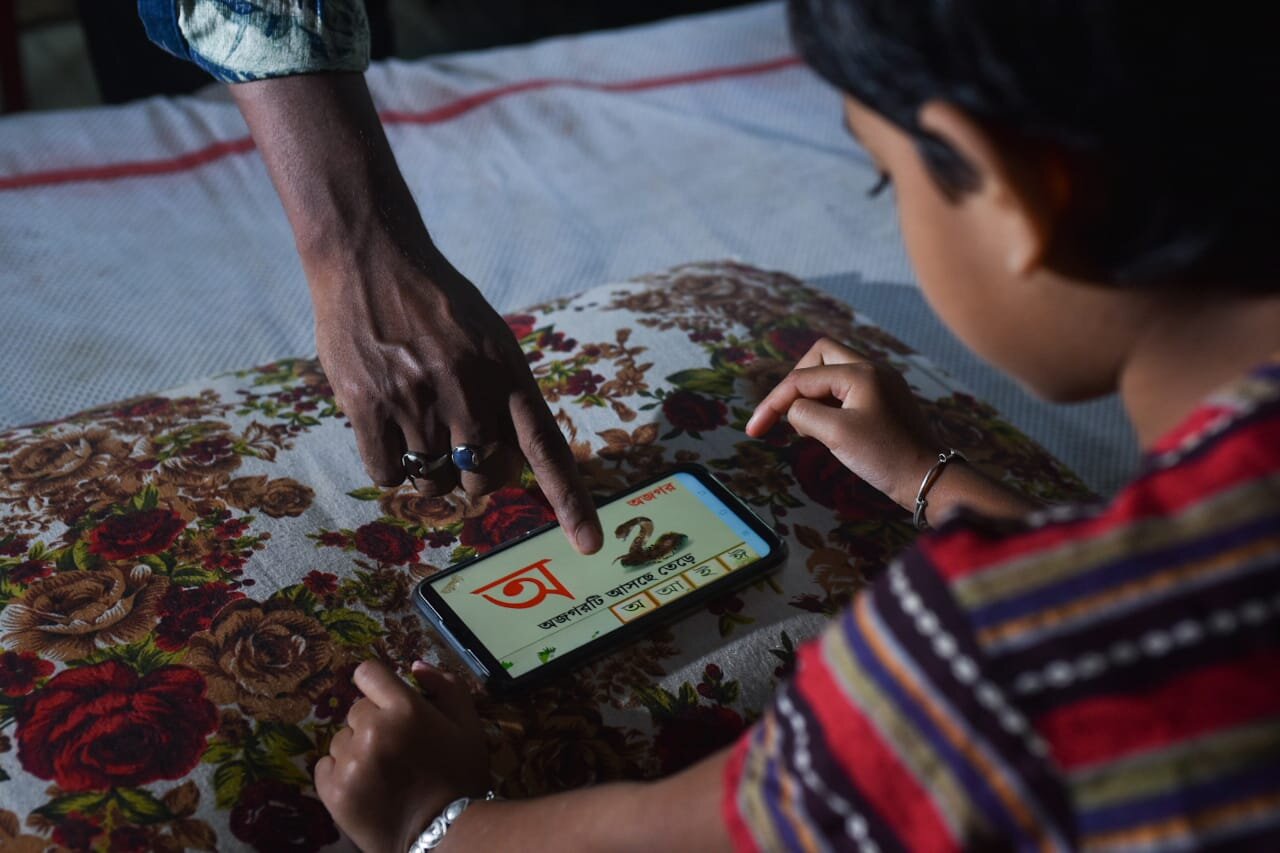The transformative impact of technology in education, an interview with Shafiq Khan
We recently sat down with Shafiq Khan, Founder and CEO at Teach the World Foundation, and former executive at Marriott International, United Airlines and US Airways.
Shafiq has always approached technology as a means to transform the existing, create new value which was not possible before. In his mission against illiteracy at Teach the World, he continues with this logic, convinced that all human progress is tied to learning, and that the digital transformation of education will have a massive impact on the world, and especially for the most disadvantaged people.
Join us for a fascinating interview about education, technology, and how to challenge the status quo with brio!
Lumax Digital (LD): Dear Shafiq, it is a great pleasure to have you with us today, thank you very much for taking the time! Can you please let us know a little about yourself and your mission to conquer illiteracy at Teach the World Foundation (TTWF)?
Shafiq Khan (SK): Before founding Teach the World in 2016, I was a senior executive at Marriott International, the world's largest hotel company, for 16 years. In my last role, I was responsible for leading all of Marriott's distribution channels, including both digital and analog. The highlight of these was Marriott.com, the industry-leading website.
Previously, I was at United Airlines and US Airways, where I had the privilege of pioneering some groundbreaking initiatives which transformed airline distribution, using digital technology. These include the development and launch of the airline industry's first online booking engines and electronic ticketing.
Throughout my career, I have always seen technology as a phenomenal enabler. After decades using it for commercial purposes, I decided to create Teach the World, to leverage the immense power of technology for the greater good, tackling one of the world’s biggest crises: education.
With Teach the World Foundation we combat illiteracy, leveraging the power of digital to enable self-learning. Our programs are deployable rapidly and cost-effectively and outperform the traditional means of learning.
LD: What a career, and what a mission you are on with TTWF! As you mention, technology is indeed a formidable enabler, across industries can you tell us more about your approach?
SK: When you think of applying technology, don’t limit yourself to just “digitalizing” something, or reproduce the same thing you did without that technology; think about what else it could be, how you could transform the process, and ultimately create new value.
For example, if you have a newspaper that you are bringing to digital, you don’t have the constraints of space and delivery. That really opens up a world of opportunity. The idea should not be to just put the paper online, it should be to see what else you can do to make the experience more compelling for the reader, by giving the reader far more options than what would otherwise be the case.
You can, for example, empower the reader with access to the complete career and achievements of an athlete, or performer, to complement the content within an article about this person: watching Swimming at the Olympics, you could augment an article by including the whole history of Michael Phelps and his 28 medals, something which would not be possible in paper.
Another great example is the analog phone vs. the digital phone: we went from being only able to talk to each other, to a lifestyle appliance that transformed our lives, enabling us with options we could not even imagine before. Likewise, going from the typewriter to the computer did not just digitalized the process of typing text, it opened up a new world of possibilities.
In these examples, technology changed the game. It made the “impossible” possible, pushed back the boundaries, to unlock truly novel horizons.
I have strived to take this approach throughout my career, encouraging my teams to think further than what they knew, inspiring them to revolutionize the processes.
LD: Question: You mentioned that the digital revolution in education will have a greater impact than any of the other digital transformations we have seen so far, why do you think so?
SK: All human progress throughout recorded human history has been driven by learning. If we believe, as we do, that digital will greatly enhance learning, it will have a massive transformative effect. It will dramatically change our lives and change our societies.
If 10,000 years ago we were able to learn even 1% faster, we might have arrived where we are today 500 years earlier. Today, we have the ability to accelerate learning through digital learning, making it available to more people than ever before, in a more efficient way.
Think about the recent vaccine against COVID-19; it is a perfect example of learning having accelerated progress. We came out with vaccines within a few months instead of the traditional few years!
LD: Fascinating, and how do you apply that to education and your work at Teach the World Foundation?
SK: We know that all learning is a function of engagement or attention. In the analog world, engagement is passive. You listen to a teacher, and perhaps you can pay attention, or not. With digital learning, it is possible for us to create games which are not passive and where the students are completely engaged while they are playing these games.
We have found that this has a powerful impact on how much someone learns. In our case, we find that our students learn almost twice as much as those learning in the traditional way. The big transformation is that we are moving from a “push” method of learning to a “pull” method of learning.
Whatever we are seeing today, is going to be significantly more powerful tomorrow, as we’ve always seen with all technology. We know that digital will enable personalized learning leveraging artificial intelligence and experiential learning through virtual reality and augmented reality. In short, it will tremendously enhance engagement and thus learning. We have developed with our software partners solutions where our students – primarily children under 12 – are empowered to self-learn on tablets, with a very limited direction required from the teacher. We have seen impressive results, with children learning to read, write, and count in as little as 3 months, with just two hours a day.
This will have a powerful democratization impact on the world. The poorest of the poor will be learning from the world’s best software. It changes the game in the underdeveloped countries, as we can set up schools with virtually no teachers and impact more children more rapidly than we could with traditional schools. And of course, it has the power to disrupt traditional education even in developed countries, by providing more efficient and self-paced on-demand education. We are already seeing that at the college and university level with the MOOCS (Massively Open Online Course), or the University of the People.
LD: COVID-19 has impacted just about every sector and human across the globe, and education was particularly disrupted. Can you tell us how it impacted your mission, and what you did to continue your activity?
SK: Like everybody in the world, COVID hit us very hard, and brought our programs to a standstill. The children we support are in the most marginalized communities in the world, and certainly do not have access to technologies like videoconferencing to continue learning, like their counterparts in the developed world.
We scrambled to launch a home-schooling program. Our home-schooling model was driven by school closures during the COVID-19 pandemic. With more than 50 million children in Pakistan having lost access and tablets being cost prohibitive, we needed alternatives. Necessity being the mother of invention, we looked for new alternatives in this crisis. The most promising one we found was smartphones, which already have a very large installed base. We immediately began a pilot of smartphones which has already achieved decent scale and serves 1700 children. If we can make it work, it could have a gigantic impact because there are over 4 billion smartphones in the world, many of them even in marginalized communities.
LD: What are your plans for the coming years for Teach the World Foundation?
SK: Post COVID, we have formalized our product line around three different programs:
The micro-schools program
Here we focus on out-of-school children in marginalized communities without schools/teachers. We launch in communities with large out-of-school populations. This model is an excellent alternative for children in urban slums, refugee camps, and internally displaced person (IDP) environments.
The second program is the in-school program
Here we focus on in-school children suffering from poor quality of education. Our model is deployed in partnership with large local NGOs already operating schools, leveraging their staff, classrooms, schools, and utilities. Learning is delivered on tablets, using “best-in-class” English, math, and local language content.
The third one is the Smartphone program
Here we focus on both out-of-school children with no access to schools and in-school children needing quality enhancement. We launched using our existing portfolio of educational games through existing implementation partners. We are currently testing this model with more than 1,700 children in Pakistan and Bangladesh. Early results have been strong. Focus groups with parents show that the program has been very successful at engaging and motivating children to study despite school closures.
Images courtesy of Teach the World Foundation, click on each to find out more about the program
We plan on expanding all three, with a focus on the micro-schools which are a powerful, cost-effective, and rapidly scalable solution. Our plans call for over 2 million children impacted within 5 years, across the 3 programs.
LD: How can our readers help you?
SK: We want everyone to join this mission. We believe this should be everyone’s mission in the world, so we would like everyone to be a friend of this mission. If all you can do is wish us well, we will thank you for that, but there are many other things you can do, such as:
- Volunteering your time and skills
- Opening doors for us
- Or simply giving us advice and input
And if you find other educational programs that you like, please support them as well.
LD: Now some quick-fire questions: When you're not working, how do you like to spend your time?
SK: Frankly, I have no time, so I have forgottenJ! But if I had time, I love to read, watch movies, play squash, and travel
LD: What are you reading currently?
SK: John Le Carré is my favorite spy-novelist, and I have his entire collection which I enjoy reading multiple times
LD: One piece of advice for someone getting started in digital learning today?
SK: Don’t try to make an existing process digital. Think about the process and think about the new capabilities digital gives you and try to change the game
LD: The key usage of digital learning which will transform the way we approach training?
SK: the ability to try out any skill in a virtual, simulated environment. For example, a doctor being able to perform an open-heart surgery in a gamified environment
LD: What do you think about the term EdTech?
SK: Help me retire that soulless term! I prefer much more digital learning but would love to find an even better term. I would welcome suggestions from your readers
LD: What’s the best piece of advice you’ve ever been given?
SK: Try to be the best at what you are doing, and good things will follow
LD: Your Favorite quote
SK: The world only spins forward - Anna Quindlen
LD: Well, thank you so much for sharing these insights Shafiq, it was great having you here today!
SK: My pleasure, thanks for having me!







